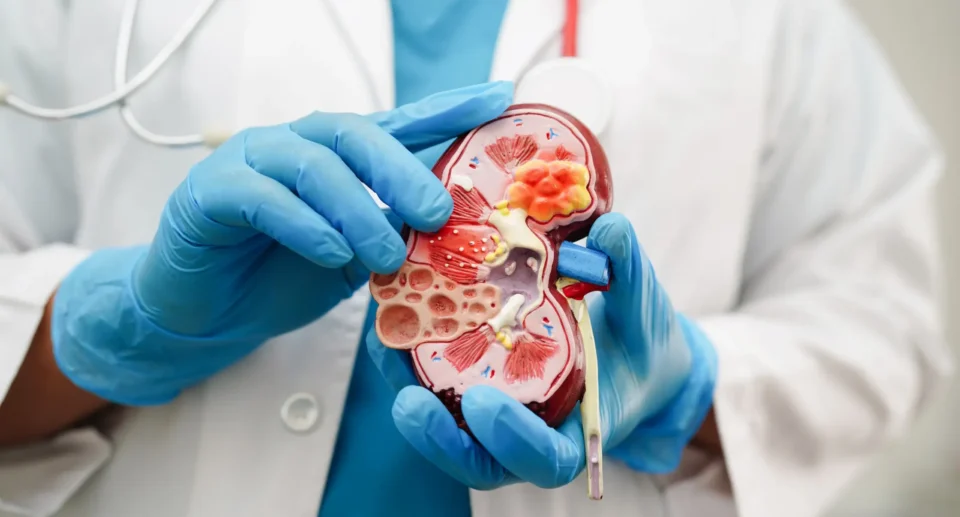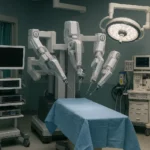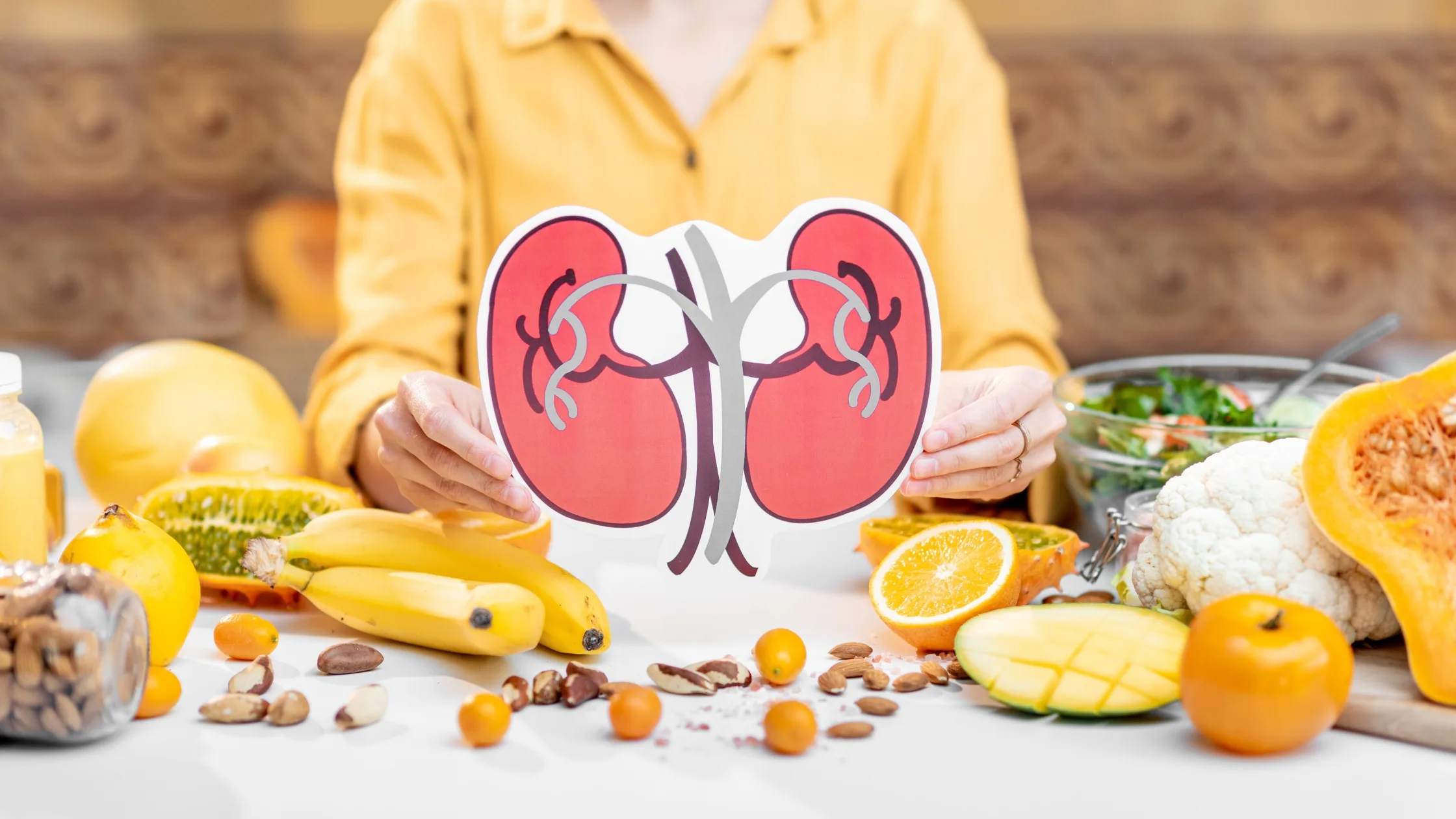Best Kidney Transplant Solutions – Safe & Effective Treatment

Do you know that more than 2 million people in the world suffer from kidney failure, and most of them depend on dialysis for survival? A kidney transplant allows these patients to live a healthier and more fulfilling life. Best kidney transplant solutions restore health for kidney failure patients.
This life-saving procedure helps people get back to their daily routine without being tied to machines. After a successful kidney transplant, many patients feel more energetic, sleep better, eat normally, and enjoy more freedom in life. Unlike dialysis, which needs regular hospital visits, a transplant gives long-term relief. People can work, travel, and live normally again. It also lowers the chances of complications that often come with dialysis, like infections or weakness. Transplants are now safer than ever, thanks to new medicines and skilled doctors.
For children and young adults, it means they can go to school, play, and grow without major interruptions. For older people, it brings comfort and more independence. The recovery period after the surgery is usually short, and most patients return to daily activities within a few weeks. Families also feel more hopeful and relaxed when their loved one doesn’t need constant hospital visits.
A kidney transplant replaces a damaged kidney with a healthy one. Kidneys filter waste, regulate blood pressure, and aid in red blood cell production. It’s only when they lose around 90% of their function that toxic waste accumulates and causes serious health issues. A transplant can bring kidney function back and make a patient feel better overall.
Understanding Kidney Diseases
What do kidneys do in the body?
Your kidneys are like natural filters. They clean your blood, remove waste, control your blood pressure, balance salt and water, and help keep your bones healthy. You have two kidneys, and they work 24/7 to keep your body clean and healthy.
Different types of kidney disease
Chronic Kidney Disease (CKD): A progressive loss of kidney function over months or years, commonly due to diabetes or hypertension.
Polycystic Kidney Disease (PKD): A genetic disorder that leads to cyst formation in the kidneys.
Glomerulonephritis: Inflammation of kidney filters
Nephrotic Syndrome: Protein leaks into urine
Kidney Infections: Can damage kidneys if untreated
What happens when kidneys stop working properly?
If kidneys don’t work well, waste and extra fluids stay in your body. This can make you feel tired, swollen, or sick. Over time, poor kidney function can affect your heart, bones, and other organs too.
Why kidney disease is called a “silent” disease
Kidney disease often doesn’t cause pain or strong symptoms in the early stages. Many people don’t know they have it until the kidneys are badly damaged. That’s why it’s important to get regular health check-ups.
Who is at risk of kidney disease
You are more likely to get kidney disease if you:
- Have a family history of kidney problems
- Are overweight or smoke
- Are above 60 years old
- Have heart disease
What are the Symptoms of Kidney Disease?
These symptoms arise as kidney function declines, leading to toxin buildup and fluid retention. Early recognition is essential for timely treatment.
- Fatigue and weakness: Decreased vigor caused by an accumulation of waste in the blood.
- Swollen ankles and feet: Water retention as a result of impaired renal function.
- Urinary Changes: Blood, foamy urine, or more or less urine are some examples of urinary changes.
- Loss of hunger and nausea: Early fullness or frequent nausea.
- Dry, itchy skin: An indication of stored toxins and mineral imbalance.
- Shortness of breath Due to fluid buildup in the lungs or anemia caused by kidney disease.
- Muscle cramps Often related to imbalances in electrolytes like calcium and phosphorus.
- Difficulty concentrating A result of toxin accumulation affecting brain function.
- Puffy eyes Especially in the morning, indicating protein leakage in the urine.
What are the Causes of Kidney Disease?
Kidney disease happens when the kidneys are damaged. This may be due to various causes, but five major causes are discussed below:
- Diabetes: Excess sugar levels in the blood make the small blood vessels of the kidneys one by one damaged, leading to kidney failure.
- High Blood Pressure: In cases of uncontrolled high blood pressure, the workload on the kidneys becomes heavy, which gets distorted to filter waste.
- Infections & Inflammation: Kidney infections or autoimmune disease can lead to the kidneys’ inflammation and chronic pain.
- Genetic Health Conditions: Certain diseases of the kidney are hereditary, i.e., polycystic kidney disease that produces cysts in kidneys.
- Overuse of Painkillers & Drugs: Prolonged usage of some painkillers, antibiotics, or drugs destroys the functioning of kidneys.
When Do You Need a Kidney Transplant?
Kidney transplants are needed when kidneys are unable to function as needed and cause end-stage kidney disease (ESRD). At this point, kidneys are no longer able to remove waste, maintain fluid balance, and balance minerals, and transplant is the only means by which one can survive and thrive.
Signs of Kidney Failure:
Swelling: Fluid retention due to excess causes swelling in the legs, feet, face, and hands.
Fatigue: Lowered red blood cells and waste accumulation result in severe weakness and fatigue.
Urinary Changes: Decreased urine output, at times with hematuria, reflects compromised kidney filtration.
Dialysis vs Transplant: What is the difference?
| Aspect | Dialysis | Kidney Transplant |
| What It Does | Filters waste and excess fluids from the blood temporarily. | Replaces the damaged kidney with a healthy, functioning one. |
| Duration | Ongoing treatment requires regular sessions multiple times a week. | One-time surgery, followed by lifelong medication. |
| Quality of Life | Limited freedom, tiredness, lifestyle, and dietary restrictions. | Improved quality of life with more energy and fewer restrictions. |
| Effectiveness | Temporary solution; does not cure kidney failure. | Permanent solution; restores kidney function. |
| Risks | Infections, low blood pressure, muscle cramps, and vessel damage. | Organ rejection, infections, and side effects from immunosuppressants. |
| Cost | Ongoing costs for regular treatments and medications. | The high initial cost for surgery but lower long-term treatment costs. |
| Freedom | Requires frequent treatments, limiting daily activities. | More freedom after recovery; no need for regular treatments. |
| Risks of Organ Rejection | No organ rejection. | Risk of organ rejection; requires immunosuppressing medication. |
| Recovery Time | No recovery time is needed, but it is an ongoing treatment. | Recovery time is required after surgery, but you can return to normal life. |
| Dietary and Lifestyle | Strict diet and lifestyle adjustments are required. | Fewer dietary restrictions post-transplant. |
The Kidney Transplant Process: From Diagnosis to Recovery
What is a Kidney Transplant?
A kidney transplant is a surgical procedure where a healthy kidney from a donor is placed into the body of a person whose kidneys are no longer functioning properly due to end-stage kidney disease or chronic kidney failure. It is considered one of the best treatments for patients with advanced kidney disease.
Pre-Transplant:
Patients require a number of tests done before a kidney transplant. These tests determine the condition of the patient’s kidneys and their overall health and readiness for a transplant. Provided everything is in order, patients are placed on a waiting list for a transplant.
During Surgery:
A kidney transplant is a highly invasive surgery where surgeons remove the unhealthy kidney and place a donor’s kidney into the patient. This process is extremely challenging and requires extensive expertise from the physician’s end.
Transplant Surgery
- The non-functioning kidneys are usually not removed (unless they’re causing problems).
- The donor kidney is placed in the lower abdomen (pelvic area).
- Its blood vessels are connected to the recipient’s major blood vessels, and the ureter (urine tube) is connected to the bladder.
Post-Transplant:
After surgery, doctors monitor the patient in the hospital to prevent kidney rejection or infection. In the first few months, patients visit regularly for check-ups and follow-ups until full recovery.
Post-Surgery Recovery
- Recovery in the hospital takes about 5 to 10 days.
- Urine production may start immediately or take a few days, depending on the kidney source.
5. Lifelong Management
- Patients need to take immunosuppressive (anti-rejection) medications daily to prevent the immune system from attacking the new kidney.
- Regular follow-ups, blood tests, and lifestyle changes are required to maintain kidney function.
What are the Advantages of Kidney Transplant?
A kidney transplant is the preferred therapy for end-stage kidney disease and offers a much improved quality of life, increased survival, and restoration of functional kidneys over dialysis. The advantages are:
- Improved Quality of Life: Patients will feel more rested, healthier, and energetic, as well as be able to work or exercise.
- Freedom from Dialysis: Tired, lengthy, and draining dialysis sessions are a thing of the past. A transplant enables a more flexible and relaxed lifestyle.
- Longer Life: In general, functioning kidney transplants allow patients to live longer and healthier as opposed to being on dialysis.
- Natural Kidney Function: The transplanted kidney is able to filter and balance fluids, like a natural kidney, without machines.
- Fewer Food Restrictions: You will no longer have strict dietary limitations that you have to follow.
- Less Medication Over Time: Some medication is important, although less will be needed in comparison to during dialysis.
- Lower Long-Term Costs: Although a transplant is expensive at first, it is more cost-efficient than years of dialysis in the long term.
Risk Factors of Kidney Transplant
Though a kidney transplant is a second chance for life, there is some avoidable risk involved:
- Surgical Healing: Mild pain, bleeding, or infection could be possible, but proper treatment assures smooth recovery.
- Immune Response: Immunity might act adversely towards the transplanted kidney, but the medicine suppresses rejection perfectly.
- Infections: Compromised immunity predisposes one, but timely protection keeps complications at bay.
- Heart & Blood Pressure Changes: Lifestyle changes post-transplant ensure a healthy heart and normal blood pressure.
- Medication Effects: Immunosuppressive medications can cause side effects related to the immune system, but with regular monitoring, you can stay completely safe and healthy.
Living Donor vs Deceased Donor: What’s the Difference?
Living Donor
A living donor is a healthy individual who is willing to give one of their kidneys to a user in need. Since the donor is alive, the surgery can be done much quicker, thus decreasing the waiting period and the need for dialysis sessions. Kidneys from living donors generally function more efficiently and have a longer life span. Donors undergo a comprehensive health assessment prior to the donation, and post-surgery, they are able to lead a healthy life with one kidney.
Deceased Donor
Deceased donors are individuals who died and made an organ donation. Their kidneys are harvested and given to individuals the doctors feel are the right candidates for the transplants. This allows for a broader base of donors, which assists a larger segment of the population to avail transplants. Unfortunately, there might be a lengthy waiting period for some patients, and the kidney might take more time to work than the living donor’s kidney.
Why Choose India for the Best Kidney Transplant Solutions?
India is a global leader in providing the best kidney transplant solutions due to its advanced medical technology, experienced specialists, and cost-effective procedures. Many international patients opt for Indian hospitals because of their high success rates and affordable care.
1. Low-cost treatment
Kidney transplants in India are highly economical compared to Western countries without compromising the quality of treatment.
2. Best Kidney Hospitals in India
Top-class hospitals with expert doctors and cutting-edge technology:
Robotic Transplants: Max Noida, Medanta, Apollo, Metro, Max Saket, Paras, FMRI, Manipal
Traditional Transplants: BLK-Max, Artemis, Aakash
3. Advanced Surgery Options
Robotic Surgery: Shorter recovery period, fewer complications
Laparoscopic Surgery: Less pain, quick recovery
4. Experienced Kidney Specialists
World-class Surgery: Surgeons and urologists, especially in Delhi-NCR, offer world-class experts.
5. Advanced-Technology Medical Centres
- Hospitals acceptable globally with international standards
- Special transplant unit & post-op care
- Support with medical visas, accommodation & language
Success Rate and What You Can Expect?
Kidney transplants are highly successful, with over 90% of the recipient surviving. Success varies with donor source and patient overall health. A transplant kidney will function for approximately 10-20 years, allowing recipients to feel improved, regain daily activities, and have a much improved quality of life compared to dialysis.
How Regimen Healthcare Helps You Access the Best Kidney Transplant Solutions
At Regimen Healthcare, we connect patients with the best kidney transplant solutions by providing expert medical consultations, arranging seamless hospital admissions, and ensuring top-quality post-surgical care.
- Seamless Support: From consultation to bespoke planning for kidney transplant.
- Hassle-Free Travel Assistance: Full travel support for global patients.
- No Language Barriers: Professional translation services to facilitate smooth communication.
- Comprehensive Care: Care from pre-operative care to post-surgery follow-ups.
- Transparent Pricing: No surprises—all costs made transparent upfront.
- Committed Recovery Support: Incorporates life counseling, ongoing follow-ups, and psychological support for a trouble-free recovery.
Conclusion: Hope for a New Life
A kidney transplant is not just surgery; it is a chance at a clean slate. Someone with kidney failure will actually gain health and energy, and the best kidney transplant solutions can give a longer, happier life. For any kidney failure, the best kidney transplant solutions should be considered. Consider getting a transplant if you or someone you love has kidney failure. A specialist can help and open the door to a better future.
FAQs
- Can I still live the life I did after my kidney transplant?
Many people who have a successful kidney transplant can go on to lead a healthy life if they take care of themselves and make smart lifestyle choices.
- What is the duration of a kidney transplant?
A kidney can stay working for between 10 and 20 years. However, how long it lasts can be a matter of age, health of the recipient, donors, and self-care after your transplant.
- Possible complications from surgery?
A kidney transplant is generally safe, but risks include infection, rejection, and anesthesia effects. Doctors closely monitor to minimize them.








